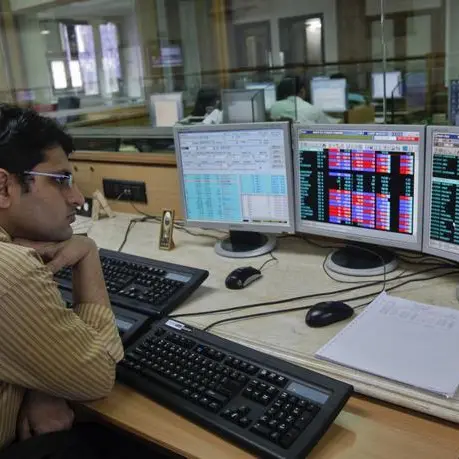PHOTO
Euro zone government bond yields fell on Friday as concern about a deepening Ukrainian conflict dampened risk appetite, while expectation of monetary policy tightening from the European Central Bank remained in place.
Risky assets fell while oil prices jumped as investors took fright from reports of a nuclear power plant on fire amid fighting between Ukrainian and Russian troops.
Authorities later said the fire in a building identified as a training centre, had been extinguished.
Money markets are pricing in a 90% chance of 30 basis points (bps) rate hikes by year-end, from about 35 bps expected right before the Russian invasion of Ukraine.
Analysts think the ECB will have to continue on the path of normalising its monetary policy due to inflation pressures.
Germany’s 10-year government bond yield, the benchmark of the bloc, fell 3.5 basis points (bps) to -0.014%..
Deutsche Bank economists see a harmonised index of consumer prices at +6.1% for the full year 2022 with risks on the upside while upgrading the figure for 2023 to +2.5%.
Their monthly projections see inflation above the ECB’s 2% target until November 2023, which, if realised, would mean that the total period of above-target inflation is set to be more than 2 years long, Deutsche Bank said in a note.
Germany’s 10-year break-even inflation rate fell to 2.197% on Friday after rising to its highest since May 2011 at 2.203% the day before.
“The aggressive spike in break-evens is keeping the ECB on the exit path, which is in line with our view that the ECB will continue to opt for initiating policy normalisation next Thursday but more flexibly,” Commerzbank analysts said.
Italy’s 10-year government bond yield fell 3 basis points to 2.28%, while the spread between Italian and German yields was at 156 bps.
Investors await the U.S. employment report later in the day, which will provide the last data before next week’s Federal Reserve policy meeting.
“The Fed, as well as markets, may look through any disappointment in the jobs data today,” ING analysts said.
“Inflation remains the overarching concern that is only aggravated by geopolitical crises, its impact on energy prices and prolongation of supply chain disruptions,” they added.
(Reporting by Stefano Rebaudo, editing by Robert Birsel)





















